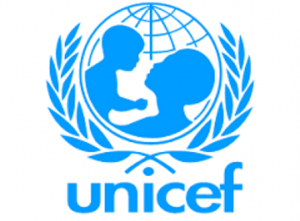UNICEF partners Malawi to test first humanitarian drone in Africa
In cooperation with the Government of Malawi, the United Nations Children’s Fund (UNICEF) will establish an air corridor and use unmanned aircraft systems (UAS), known as drones, for humanitarian purposes, the agency announced today.
“Malawi has over the past years faced serious droughts and flooding,” stated Malawi’s Minister of Transport and Public Works, Jappie Mhango. “The launch of the UAS testing corridor is particularly important to support transportation and data collection where land transport infrastructure is either not feasible or difficult during emergencies.”
The corridor will be the first one in Africa, and the first one to be used globally for humanitarian and development purposes, the agency reports. It will become fully operational by April 2017, while its distance is expected to be no longer than 40 kilometres.
The Humanitarian UAS Testing Corridor will undergo testing in three areas: imagery – generating and analyzing aerial images for development and during humanitarian crises, including for situation monitoring in floods and earthquakes, connectivity – exploring the possibility for UAS to extend Wi-Fi or cellphone signals across difficult terrain, particularly in emergency settings, and transport – delivery of small low weight supplies such as emergency medical supplies, vaccines and samples for laboratory diagnosis, including for HIV testing.
“The establishment of the testing corridor means there is now a place where we can explore the potential of UAS in the development and humanitarian space,” said Cynthia McCaffrey, Director of UNICEF’s Office of Innovation, highlighting that the programme help the agency adapt to rapid developments in UAS technology and potentially integrate UAS into our work for children.
UNICEF is working with governments and private sector partners on incorporating the system in low income countries. Current focus is on open source and user-centred design.
The agency has already had a pilot test run in March 2016, using UAS for the transportation of dried blood samples for early infant diagnosis of HIV. According to UNICEF, the system proved to be efficient and valuable.
In the following months, the Malawi Government and UNICEF will finalize the details and identify potential UAS operators that can function in the case of disasters in the region and put in place stand-by agreements to ensure a rapid emergency response.
About author
You might also like
Gates Foundation announces $40m fund for mRNA vaccine manufacturing in Africa
Bill Gates, Co-chair, Bill & Melinda Gates Foundation, says there is a new investment to advance access to mRNA research and vaccine manufacturing technology. Gates said in a statement at
Senator lauds FG on nutrition intervention in North-east
ABUJA – The Chairman, Senate Ad-hoc Committee on North East, Senator Shehu Sani has applauded the Federal Ministry of Health over its nutrition interventions in terror-ravaged Borno State saying the
Spain passes law for menstrual leave
Spain’s sexual and reproductive health law, which includes the right for women to take time off work when they have their period, came into effect on June 1st. The Gender








0 Comments
No Comments Yet!
You can be first to comment this post!